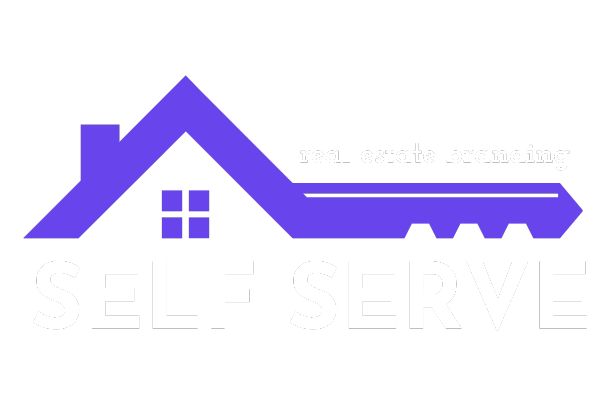Realtors Must Adapt their Approach to Effectively Reach and Engage their Target Audience
In today’s competitive real estate landscape, innovative marketing strategies are essential for professionals aiming to stand out and attract potential clients. With the industry’s digital transformation and evolving consumer preferences, realtors must adapt their approach to effectively reach and engage their target audience. This comprehensive guide explores a wide array of marketing ideas tailored specifically for real estate professionals, combining traditional methods with cutting-edge digital techniques to create a robust and effective marketing plan.
The real estate market is dynamic, with over 360,000 brokerage firms operating in the United States alone. To thrive in this environment, realtors must leverage a mix of online and offline marketing strategies, embracing both time-tested techniques and emerging trends. From optimizing your online presence to hosting engaging community events, this guide covers all aspects of real estate marketing, providing you with the tools and insights needed to elevate your brand and generate quality leads.
As we delve into these strategies, remember that the key to success lies in understanding your target audience, consistently delivering value, and adapting your approach based on market trends and client feedback. Whether you’re a seasoned real estate veteran or just starting in the industry, these marketing ideas will help you build a strong brand presence, nurture client relationships, and ultimately drive your business growth.
Establishing a Strong Online Presence
In the digital age, a robust online presence is crucial for real estate professionals. It serves as the foundation of your marketing efforts, allowing potential clients to find and engage with your services easily. Let’s explore key strategies to enhance your digital footprint and make a lasting impression in the virtual realm.
Crafting an Engaging Website
Your website is often the first point of contact between you and potential clients. It should be visually appealing, user-friendly, and packed with valuable information. Consider incorporating these elements:
- A clean, modern design that reflects your brand identity
- Easy navigation with clearly labeled sections
- High-quality images and videos showcasing your listings
- Detailed property descriptions and virtual tours
- Client testimonials and success stories
- A blog section with informative articles about the local real estate market
- Clear calls-to-action (CTAs) encouraging visitors to contact you or schedule a consultation
Remember to optimize your website for mobile devices, as a significant portion of property searches now occur on smartphones and tablets. Ensure that your site loads quickly and displays correctly across all screen sizes to provide a seamless user experience.
Leveraging Social Media Platforms
Social media platforms offer unparalleled opportunities to connect with potential clients and showcase your expertise. Each platform has its unique strengths, so tailor your content accordingly:
- Facebook: Share property listings, market updates, and community events. Utilize Facebook Groups to engage with local residents and answer real estate questions.
- Instagram: Post high-quality photos and videos of properties, behind-the-scenes glimpses of your work, and local area highlights. Use Instagram Stories and Reels to create engaging, short-form content.
- LinkedIn: Connect with other professionals, share industry insights, and establish yourself as a thought leader in the real estate sector.
- YouTube: Create virtual property tours, neighborhood guides, and educational videos about the home buying or selling process.
- Pinterest: Curate boards featuring home decor ideas, renovation tips, and local attractions to inspire potential buyers.
Consistency is key when it comes to social media marketing. Develop a content calendar to ensure regular posting and engage with your followers by responding to comments and messages promptly.
Optimizing for Local Search
Local search engine optimization (SEO) is crucial for real estate professionals looking to attract clients in specific geographic areas. Implement these strategies to improve your local search rankings:
- Claim and optimize your Google My Business listing with accurate information, photos, and regular updates
- Include location-specific keywords in your website content, meta descriptions, and image alt tags
- Create separate pages for each neighborhood or area you serve, with detailed information about local amenities, schools, and property trends
- Encourage satisfied clients to leave reviews on Google, Yelp, and other relevant platforms
- Build backlinks from local businesses, community organizations, and real estate directories
By focusing on local SEO, you’ll increase your visibility to potential clients searching for real estate services in your area.
Content Marketing for Real Estate Success
Content marketing is a powerful tool for real estate professionals to demonstrate their expertise, provide value to potential clients, and improve their search engine rankings. By creating and sharing informative, engaging content, you can establish yourself as a trusted resource in the real estate industry.
Developing a Content Strategy
Before diving into content creation, it’s essential to develop a comprehensive strategy that aligns with your business goals and target audience. Consider the following steps:
- Define your target audience and their pain points
- Identify key topics and themes relevant to your audience
- Choose appropriate content formats (e.g., blog posts, videos, infographics)
- Create a content calendar to ensure consistent publishing
- Establish key performance indicators (KPIs) to measure success
Your content strategy should be flexible enough to adapt to changing market conditions and audience preferences while maintaining a consistent brand voice and message.
Creating Valuable Blog Content
A well-maintained blog can significantly boost your website’s SEO and provide valuable information to potential clients. Some blog post ideas include:
- Market trend analysis and predictions
- Home buying and selling tips
- Neighborhood guides and local area spotlights
- DIY home improvement and staging advice
- Explanations of complex real estate terms and processes
- Success stories and case studies from satisfied clients
When writing blog posts, focus on providing actionable insights and addressing common questions or concerns your target audience may have. Use headers, bullet points, and images to break up text and improve readability.
Producing Engaging Video Content
Video content is increasingly popular among real estate consumers and can be an effective way to showcase properties and share your expertise. Consider creating:
- Virtual property tours and walkthrough videos
- Neighborhood overview videos highlighting local attractions and amenities
- Client testimonial videos
- Educational videos explaining various aspects of the real estate process
- Live Q&A sessions or webinars addressing common real estate topics
Invest in quality equipment and editing software to ensure your videos look professional and reflect positively on your brand.
Leveraging Email Marketing
Email marketing remains a highly effective way to nurture leads and stay in touch with past clients. Develop targeted email campaigns for different segments of your audience, such as:
- Welcome series for new subscribers
- Monthly or quarterly market updates
- Property alerts for potential buyers based on their preferences
- Home maintenance tips and seasonal reminders for past clients
- Exclusive offers or sneak peeks of upcoming listings
Personalize your emails as much as possible and provide clear value to recipients to encourage high open and click-through rates.
Innovative Digital Marketing Techniques
As technology continues to evolve, real estate professionals have access to an ever-expanding array of digital marketing tools and techniques. Embracing these innovative approaches can help you reach new audiences and stand out in a crowded market.
Harnessing the Power of Virtual Reality
Virtual reality (VR) technology is revolutionizing the way potential buyers experience properties. Consider incorporating VR into your marketing strategy by:
- Creating immersive 3D virtual tours of properties
- Offering virtual staging options to help buyers visualize different design possibilities
- Developing VR experiences that showcase the neighborhood and local amenities
While VR technology requires an initial investment, it can significantly enhance the buyer experience and set you apart from competitors.
Utilizing Artificial Intelligence and Chatbots
Artificial intelligence (AI) and chatbots can streamline your marketing efforts and improve customer service. Implement these technologies to:
- Provide instant responses to common inquiries on your website
- Qualify leads and schedule appointments automatically
- Personalize property recommendations based on user behavior and preferences
- Analyze market trends and predict future property values
By leveraging AI and chatbots, you can provide 24/7 support to potential clients and free up your time to focus on high-value activities.
Implementing Targeted Advertising Campaigns
Digital advertising platforms offer sophisticated targeting options that allow you to reach specific demographics and interests. Consider these strategies:
- Use Facebook and Instagram ads to target users based on location, age, income, and interests
- Implement Google Ads campaigns to appear in local search results for relevant keywords
- Retarget website visitors with display ads showcasing properties they’ve viewed
- Experiment with native advertising on popular real estate websites and blogs
Monitor your advertising campaigns closely and adjust your targeting and messaging based on performance data to maximize your return on investment.
Exploring Influencer Partnerships
Collaborating with local influencers can help you reach new audiences and build credibility. Look for influencers who align with your brand values and have a following that matches your target demographic. Potential partnership ideas include:
- Sponsored social media posts featuring your listings or services
- Influencer-hosted property tours or open houses
- Collaborative content creation, such as neighborhood guides or home decor tips
- Joint webinars or live Q&A sessions addressing real estate topics
When working with influencers, ensure that all partnerships comply with relevant advertising regulations and disclosure requirements.

